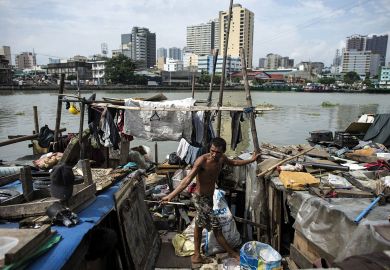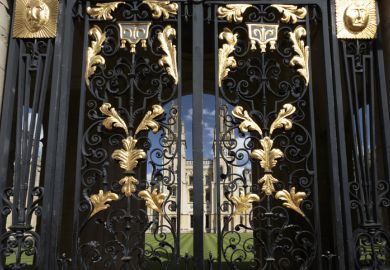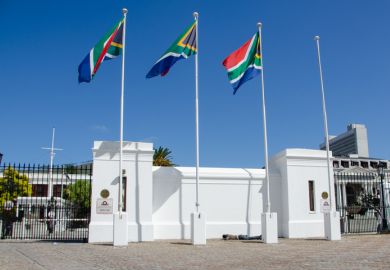Filipino educators say the partial elimination of tuition fees threatens the existence of private universities that provide the bulk of the country’s higher education.
Fees were scrapped at 114 public universities and colleges by then president Rodrigo Duterte in 2017, but they were maintained at the non-government institutions that comprise the lion’s share of the sector and enrol about 54 per cent of students.
Economists warned that the move would challenge the education budget while disproportionately benefiting students from affluent backgrounds. Critics say these predictions have proven accurate, with wealthier students – who traditionally enrolled in private local universities or went overseas to study – now targeting fee-free public education.
Meanwhile, poorer students lured by the absence of fees are abandoning their degrees in increasing numbers, as the academic or economic challenges of study prove insurmountable.
Karol Mark Yee, a policy expert leading the country’s biggest education review in three decades, estimates that attrition rates average 30 per cent in universities across the Philippines and reach 90 per cent among the poorest communities.
Maria Luz Vilches, vice-president for higher education at Ateneo de Manila University, said students had less “skin in the game” when tuition was free and consequently had less compunction about dropping out.
Dr Vilches preferred the former system of “socialised” tuition fees. “It gave responsibility to students whose parents invested in their education by paying affordable tuition according to their financial capability.”
She said that at Ateneo de Manila, the country’s top-ranked university, some wealthier students now hedged their bets by accepting offers of enrolment while waiting to see if they had secured places at the nearby and similarly ranked University of the Philippines (UP). Applicants were prepared to forgo the 10,000 peso (£140) reservation fee at Ateneo de Manila because they saved far more by avoiding tuition fees at government-owned UP.
Dr Vilches said competition from tuition-free state education, combined with Covid’s financial impacts, had forced some private universities’ closure. Ateneo de Manila’s future was not in jeopardy, but loss of students to fee-free public institutions – and to overseas universities, as families emigrated from their economically struggling country – had compromised its ability to bankroll scholarships for about one-quarter of its students.
Dr Vilches said the institution had frozen its tuition fees during the pandemic, partially refunded laboratory costs and given students 20,000 peso payments to help with the “economic crunch”. It had also avoided redundancies – a significant challenge in a country where government support for private universities was limited to funding for research, postgraduate scholarships and some science teaching. These funding streams were declining, and institutional contributions were required.
She said tuition-free study at public universities could ultimately prove self-defeating if it threatened the solvency of private institutions, because the public sector alone could not meet demand for higher education in a developing country of almost 120 million people.
The Philippines’ finance secretary, Benjamin Diokno, has reportedly proposed a review of the “unwieldy, inefficient and wasteful” free tuition regime. Fellow parliamentarians have defended the scheme, while an October poll suggested that it had overwhelming public support.
But Dr Vilches said some authorities considered the policy unsustainable. “What will happen when free tuition stops is anyone’s guess. I suspect that state universities and colleges will still cost less, especially [compared to] the more expensive private schools, so application numbers…will continue to favour the former group.”
Register to continue
Why register?
- Registration is free and only takes a moment
- Once registered, you can read 3 articles a month
- Sign up for our newsletter
Subscribe
Or subscribe for unlimited access to:
- Unlimited access to news, views, insights & reviews
- Digital editions
- Digital access to THE’s university and college rankings analysis
Already registered or a current subscriber? Login








